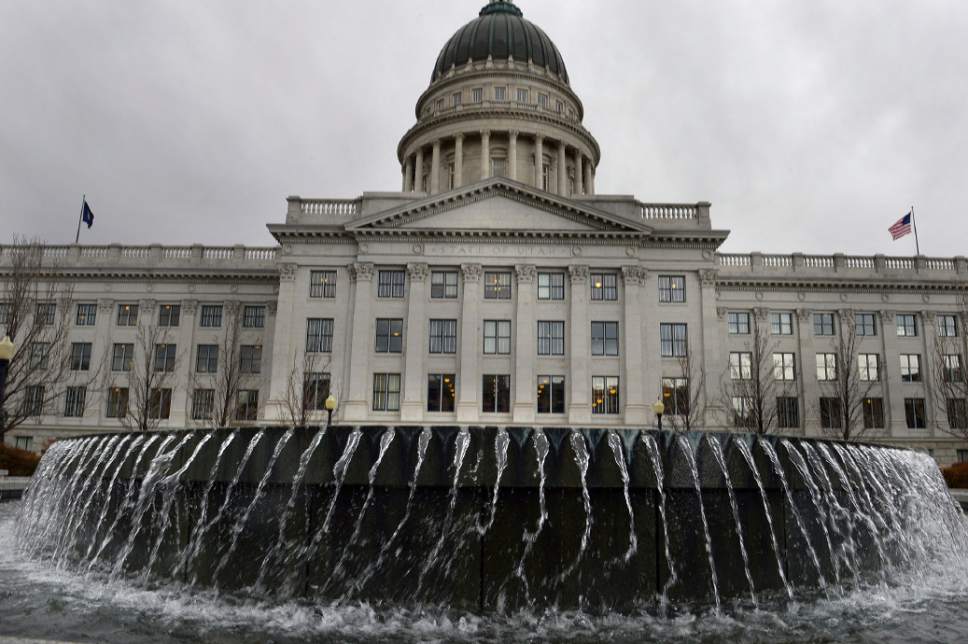This is an archived article that was published on sltrib.com in 2017, and information in the article may be outdated. It is provided only for personal research purposes and may not be reprinted.
A hidden level of Utah government — nearly 500 entities that spend $3.5 billion a year to provide limited services such as water, sewer, recreation, police or fire protection — is rife with "poor governance and weak oversight," a new audit says.
So House Speaker Greg Hughes and Senate President Wayne Niederhauser warned such agencies Tuesday that they will "aggressively review" their compliance with a new list of best practices suggested by the legislative auditor general's office.
"We intend to assign the auditor general annual follow-up reviews to verify that these best practices have been successfully implemented," they wrote to the agencies.
Several recent probes by Utah Auditor John Dougall and legislative auditors found waste, fraud and abuse with many such agencies. So Niederhauser, R-Sandy, and Hughes, R-Draper, asked legislative auditors to see how widespread such problems may be.
They surveyed 27 such entities and found that:
• 16 had missing or weak internal controls.
• 13 had a board or staffers — or both — who lacked the qualifications and training necessary to protect against waste, fraud and abuse.
• 17 have an organizational culture that does not support good governance and accountability.
Auditors also tested 50 randomly selected entities and found that 33 did not submit budgets to the state auditor within required deadlines, if at all; 22 were not complying with open meetings law requirements to post their agendas on the state's public notice website; and just a few complied with requirements to post contact information for board members.
"Because they tend to operate behind the scenes, many limited-purpose entities do not receive the same level of public scrutiny as city, county and state government agencies," the report said. It concluded that "poor governance and weak oversight are common."
It added that, "Unless improvements are made, we believe many of Utah's limited-purpose entities will continue to face a high risk of fraud, waste, abuse and poor management."
The report suggested withholding tax funds from local entities that fail to comply with all state disclosure laws, taking steps to dissolve agencies that persistently fail to comply, and encouraging counties to take a larger role in promoting compliance.
The report noted that in the past three years, the legislative auditor general and the state auditor performed 20 audits of limited-purpose entities. Eight discovered cases of fraud, waste and abuse. Another 12 found instances of weak controls, poor policies and procedures. Examples of previous findings include:
• The Mapleton Irrigation District finance officer stole between $103,093 and $116,797.
• The Utah Communications Authority paid more than $800,000 for personal use by officials.
• The Unified Fire Authority self-dealt and misused public money; auditors told the agency to attempt to get a half a million dollars in reimbursement.
• The former executive director of the Utah League of Cities and Towns charged $57,000 in personal expenses to his business credit card; auditors questioned another $130,000 in charges because they lacked documentation showing that they were for business purposes.
The report said its new survey found that 21 of 27 agencies that it reviewed closely had serious problems also, suggesting that they are widespread.
It said poor separation of duties is common and could easily allow fraud. For example, it said a rural water and sewer district had one person handle all accounting and finance tasks by herself.
Auditors said they found that boards often do not monitor actual spending. They said the manager of a mosquito abatement district reported that he did not normally allow the board to review spending, unless it asked for specific information.
Auditors found that boards often lack members with governance, finance and accounting backgrounds. They discovered that some boards suffer because they have difficulty finding anyone willing to serve, let alone people with appropriate training.
For example, the report said, one water and sewer district was able to fill a board vacancy only after the district's only employee went door to door, asking people if they might be willing to serve on the board.
Auditors proposed a checklist of best practices for board members with 25 specific items. Some include:
• "The board members recognize their role is to be more than just a ceremonial body" and must "hold staff accountable for results."
• To protect against fraud, "staff duties are segregated such that no one person has control over all parts of a financial transaction."
• The board regularly reviews disbursements.
• The board requires its formal approval of any expenditure above a certain amount.
• The board requires that two people sign all checks.
• Board and staffers regularly receive the required training in open and public meetings and in board governance.
• The board provides an ethics hotline and adopts a whistleblower policy.
LeGrand W. Bitter, executive director of the Utah Association of Special Districts, wrote in response to the audits that the list of best practices "will be helpful as we continue to provide training, best practices, vision and focus to our members."





